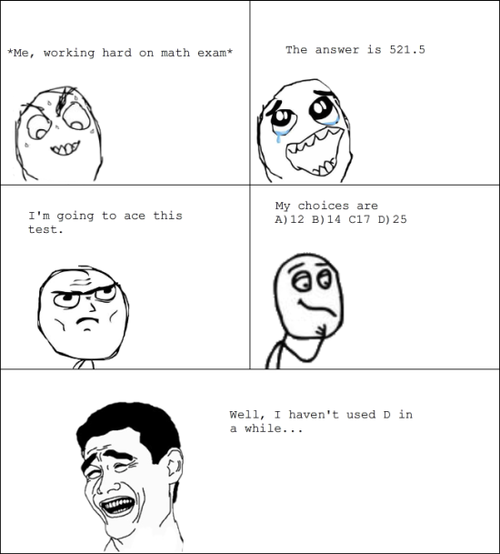An algebra problem by Aneesh Kundu
 Solve the following system
x
y
2
=
1
5
x
2
+
1
7
x
y
+
1
5
y
2
Solve the following system
x
y
2
=
1
5
x
2
+
1
7
x
y
+
1
5
y
2
x 2 y = 2 0 x 2 + 3 y 2
x = 0 , y = 0
Enter your answer as the product of all possible distinct complex values of x and y .
The answer is 8867965.
This section requires Javascript.
You are seeing this because something didn't load right. We suggest you, (a) try
refreshing the page, (b) enabling javascript if it is disabled on your browser and,
finally, (c)
loading the
non-javascript version of this page
. We're sorry about the hassle.
1 solution
Following the steps that you outline, we get 1 5 x 3 − 3 x 2 y + 1 5 x y 2 − 3 y 3 = 0 , which factors as 3 ( 5 x − y ) ( x 2 + y 2 ) = 0 , so y = 5 x , y = x i , or y = − x i .
If y = 5 x , then we can substitute into the equation x 2 y = 2 0 x 2 + 3 y 2 , to get 5 x 3 = 2 0 x 2 + 7 5 x 2 . Then x = 1 9 and y = 9 5 .
If y = x i , then we can substitute into the equation x 2 y = 2 0 x 2 + 3 y 2 , to get i x 3 = 1 7 x 2 . Then x = − 1 7 i , and y = 1 7 .
If y = − x i , then we can substitute into the equation x 2 y = 2 0 x 2 + 3 y 2 , to get − i x 3 = 1 7 x 2 . Then x = 1 7 i , and y = 1 7 .
The product of all the solutions is 1 9 ⋅ 9 5 ⋅ ( − 1 7 i ) ⋅ 1 7 ⋅ ( 1 7 i ) ⋅ 1 7 = 1 5 0 , 7 5 5 , 4 0 5 .
Log in to reply
y can take the values 1 7 , 9 5 and x can take the values 1 9 , 1 7 i , − 1 7 i And so the product should be 1 7 × 9 5 × 1 9 × 1 7 i × − 1 7 i = 8 8 6 7 9 6 5
The question clearly said product of all values of x and y, not product of all the ordered pairs
Log in to reply
You're right, my apologies. I should have read the problem more carefully.
Log in to reply
@Jon Haussmann – I agree that the question wasn't clearly phrased and could be interpreted differently. Those who answered 8 8 6 7 9 6 5 × 1 7 = 1 5 0 , 7 5 5 , 4 0 5 have been marked correct.
I've updated the phrasing of the problem.
Log in to reply
@Calvin Lin – But I got it wrong?? It was my first answer
Shouldn't it be − 1 7 i × 1 7 i = 2 8 9 since you are asking for the product of all complex values? @Calvin Lin @Aneesh Kundu
Log in to reply
All real numbers are considered complex numbers with their imaginary part 0
Log in to reply
But if the question was asking all solutions, why not just state it? If another question, then, is asking for the product of complex solutions and you entered the product of all(including real ones) and yet wrong - it would be debatable. Hence, complex is complex, it should not be interpreted as real numbers in most cases.
Log in to reply
@Marc Vince Casimiro – Whenever a question asks for solutions, it should be assumed that x is real.(unless otherwise stated).
But if a question asks for complex solutions, then both real and non-real solutions should be considered, as real numbers are a subset of complex numbers.
Log in to reply
@Aneesh Kundu – Hm... what if the question needs the complex solutions? What word should I use other than complex such that it would not be mistaken as a real number? I still disagree though...
Log in to reply
@Marc Vince Casimiro – When I first learnt about complex numbers, I asked my teacher that if I m ( z ) = 0 then its not a complex number?
The teacher replied that every real number is a complex number( even 0 is complex) with imaginary part 0.
If u look up the definition of a complex number, it says
z is a complex number if it can be expressed in the form a + i b where a and b are real numbers and i = − 1
You might notice that the definition does not say that b = 0 .
You can use that the word non-real to describe complex numbers in which I m ( z ) = 0 . Note that on this case both a and b can't be simultaneously 0.
Divide the 1st eqn by the 2nd one. Cross multiply. Factor out x 2 + y 2 . Get the complex solutions by substituting x as ± i y , and the real ones by substituting y as 5 x .
I will add an elaborate solution in the next 48 hrs.
EDIT
The solution is already below.